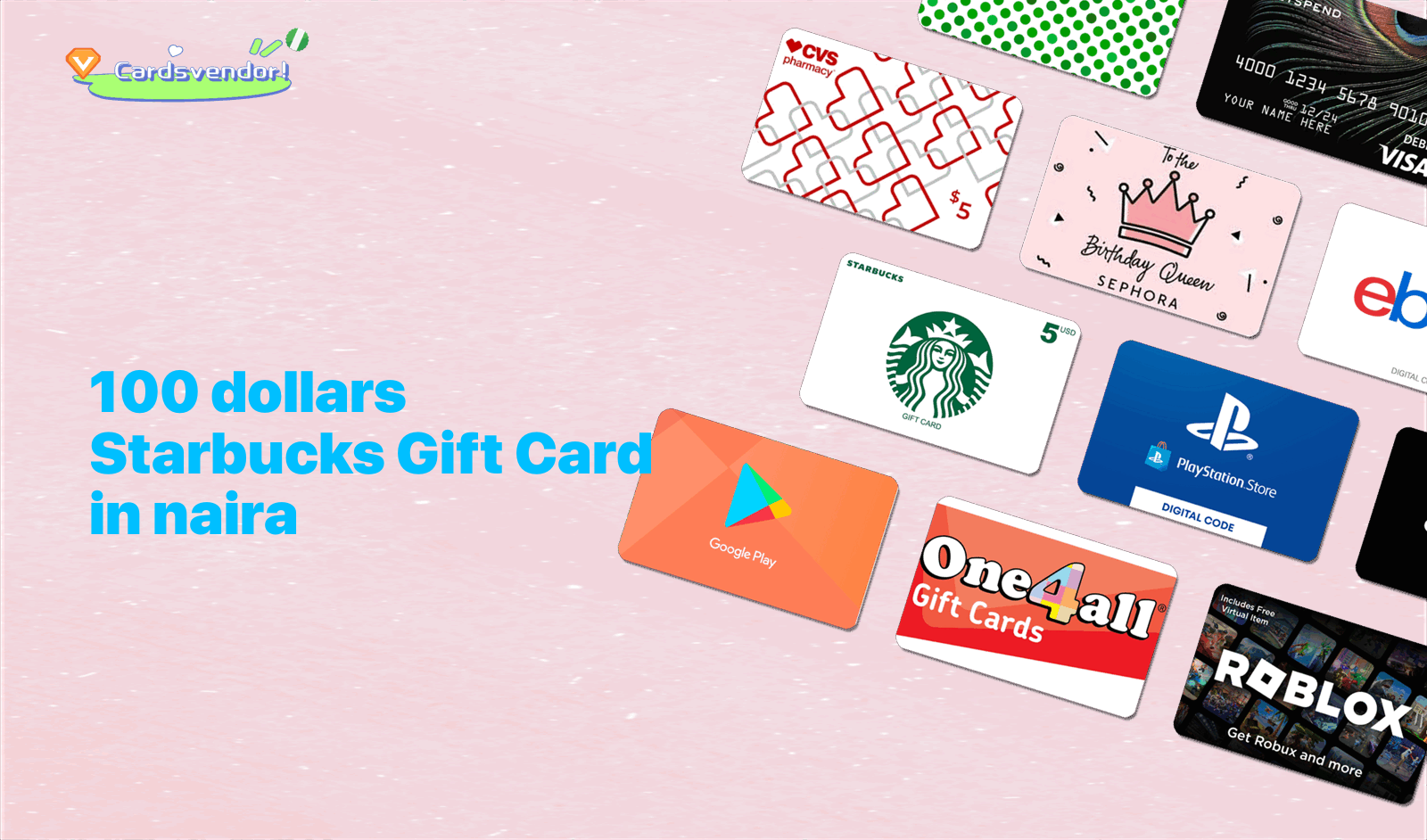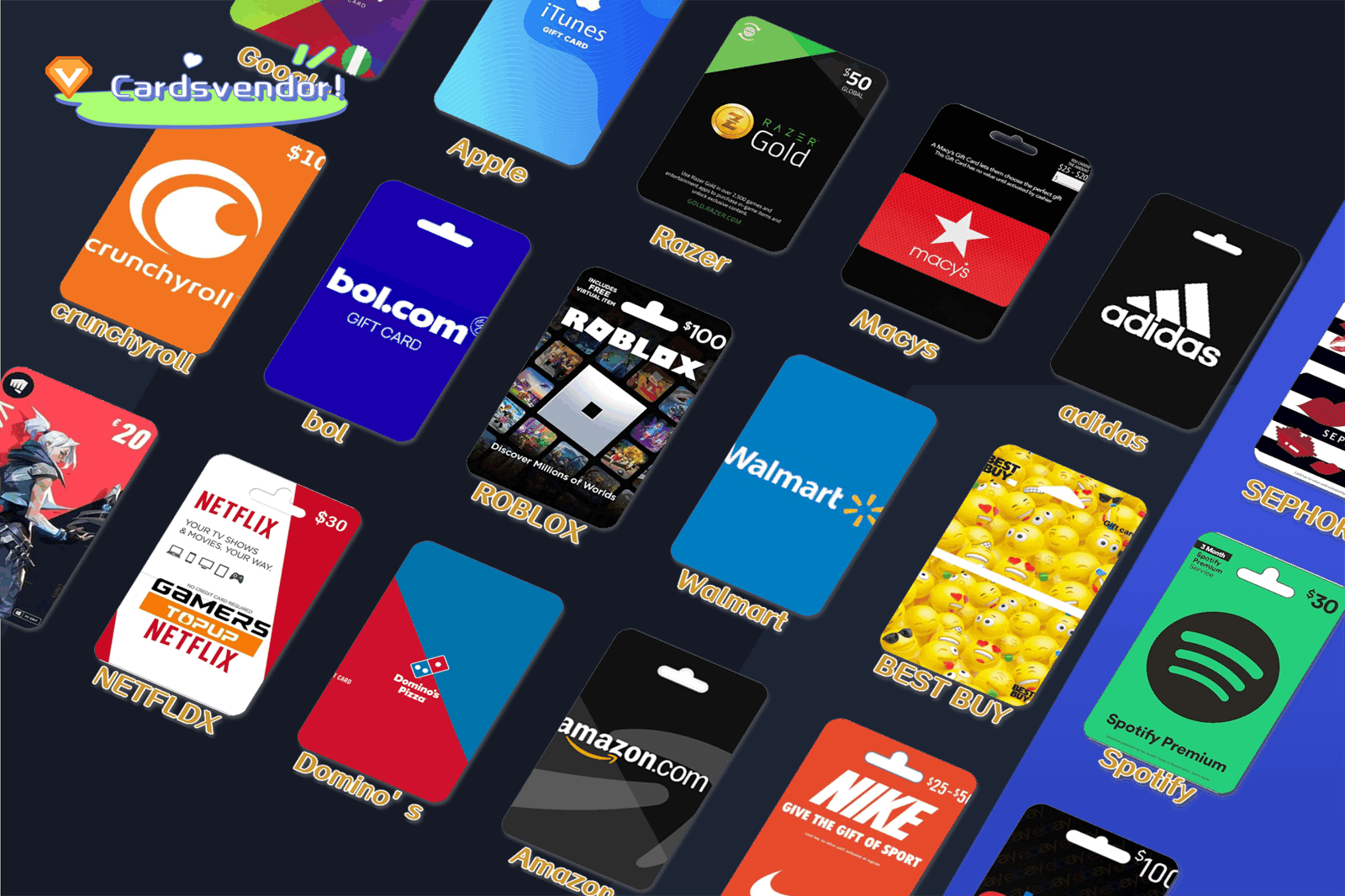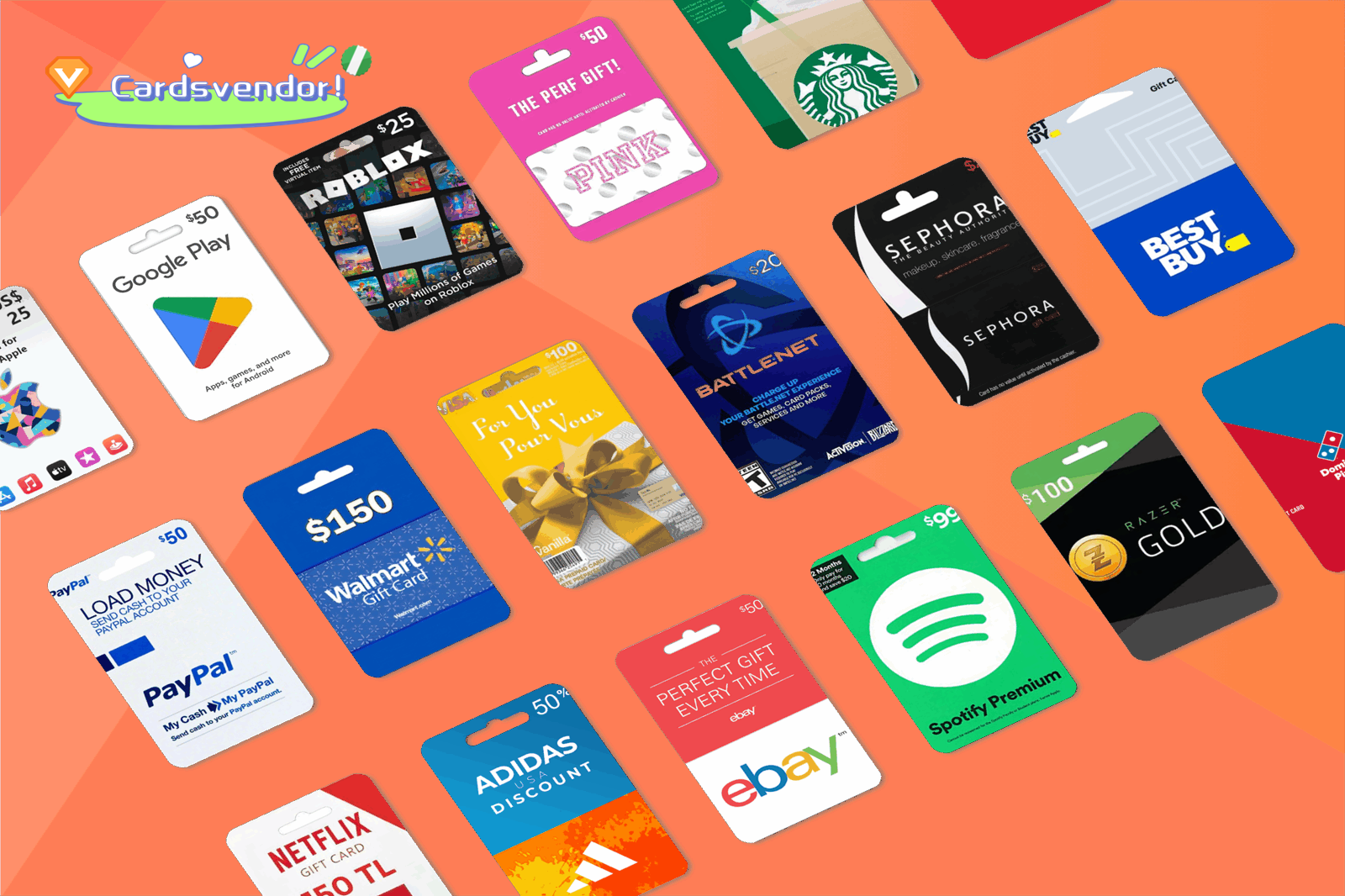What You Need to Know About Starbucks Gift Cards

A Starbucks Gift Card is a pre-paid card that customers can purchase and give as a gift or use to pay for their Starbucks purchases. It functions like a stored-value card, allowing users to load a specific amount onto it, which can be used for any item at any Starbucks location worldwide. The card can be reloaded online or at participating stores, making it convenient for gift-givers and recipients alike. It does not expire and offers flexibility, as the balance can be used for a variety of products, including coffee, tea, food, and merchandise.

Starbucks’s Gift Card Exchange Rate: How Much Naira Will You Get?
Best places to sell 100 dollars Starbucks Gift Card in Nigeria for cash
In January 2025, Cardsvendor reports that the value of 1$ in Starbucks gift cards is between 480 and 650 Naira. This means a 100$ Starbucks gift card is worth between 48,000 and 65,000 Naira. Be mindful that exchange rates fluctuate frequently due to factors such as global currency trends, regional gift card demand, and the type of gift card involved.
Card Type
$
Naira
Starbucks
10
4,800 to 6,500
Starbucks
20
9,600 to 13,000
Starbucks
30
14,400 to 19,500
Starbucks
50
24,000 to 32,500
Starbucks
100
48,000 to 65,000
Starbucks
200
96,000 to 130,000

Common Errors Of Starbucks Gift Cards
1. Lost gift card? Check for a backup PIN or email confirmation.
2. Invalid card? Ensure card isn’t expired, has no damage, and is active.
3. Card not working? Call customer service for assistance.
4. Balance issue? Check for incorrect balance entries or try a different card reader.
5. Inactive card? Activate it online or at a Starbucks location.
Starbucks gift cards are generally available for purchase in most countries where Starbucks operates. As of my last update, here are some of the countries where you can buy Starbucks gift cards:
- United States
- Canada
- United Kingdom
- Australia
- China
- France
- Germany
- Italy
- Japan
- South Korea
- Netherlands
- Spain
- Sweden
- Switzerland
- UAE (United Arab Emirates)
- United Kingdom
- and many others
However, the availability of gift cards may vary by region or local store, and there may be restrictions on where you can use the card outside of the country of purchase. It’s always best to check with your local Starbucks or the Starbucks website for the most current information. Additionally, online purchases of Starbucks gift cards are typically available through the Starbucks website in various countries, which may offer wider distribution.
Factors that Determine Starbucks Gift Card Rates
Foreign Exchange Rate Fluctuations: The primary factor is the fluctuation of the Nigerian Naira (NGN) against the US Dollar (USD), as Starbucks gift cards are priced in USD. A weaker NGN means higher local currency costs, while a stronger NGN reduces them.
Supply and Demand: The demand for USD in Nigeria affects the exchange rate. If there’s a high demand for USD (due to imports, tourism, etc.), the NGN will weaken, affecting the card’s value.
Economic Stability: Nigeria’s economic stability, including inflation rates, affects the currency’s value. High inflation can devalue the NGN, making USD-denominated gift cards more expensive.
Political and Economic Policies: Government policies, such as currency controls or trade restrictions, can impact the exchange rate and, subsequently, the cost of gift cards.
Interest Rates: The difference in interest rates between Nigeria and the US can influence currency values. Higher interest rates in the US may strengthen the USD.
Speculation and Market Sentiment: Investor confidence and speculation in the currency markets can cause sudden fluctuations in exchange rates.
Cross-Border Transactions: Transaction fees and foreign exchange margins imposed by intermediaries can add to the cost of purchasing gift cards in Nigeria.
Understanding these factors is crucial for consumers and businesses to assess the real value of Starbucks Gift Cards in Nigeria.
How to Verify the Credibility of Gift Card Dealers
Research the Merchant: Look up the merchant’s website, read about their services, and check for professional and secure web design.
Customer Reviews: Search for reviews on platforms like Trustpilot, Google Reviews, or Better Business Bureau. Positive feedback from multiple sources can be a good indicator.
Security Measures: Check if the website has HTTPS encryption and if it uses reputable payment processors like PayPal or Stripe.
Contact Information: Verify that the merchant provides a legitimate address, phone number, and email address. Try contacting them to assess their responsiveness.
Privacy Policy: Review their privacy policy to ensure they handle your personal information responsibly.
Payment Options: Be cautious if the only payment method offered is via wire transfer or cryptocurrency, as these are harder to trace.
Terms and Conditions: Read the terms and conditions carefully to understand the merchant’s policies on pricing, refunds, and disputes.
Transaction Fees: Understand any fees associated with the transaction to ensure you’re getting a fair deal.
Age of the Business: Older businesses may have more established credibility, but this isn’t always the case. Newer businesses can also be reputable if they have good reviews and secure practices.
Regulatory Compliance: Check if the merchant complies with relevant financial regulations and laws in your country.
Testimonials and Case Studies: Look for testimonials or case studies from satisfied customers.
Industry Certifications: Some merchants may display seals of approval from industry certification bodies.
By taking these steps, you can make a more informed decision about the credibility of a merchant and reduce the risk of fraudulent transactions.
